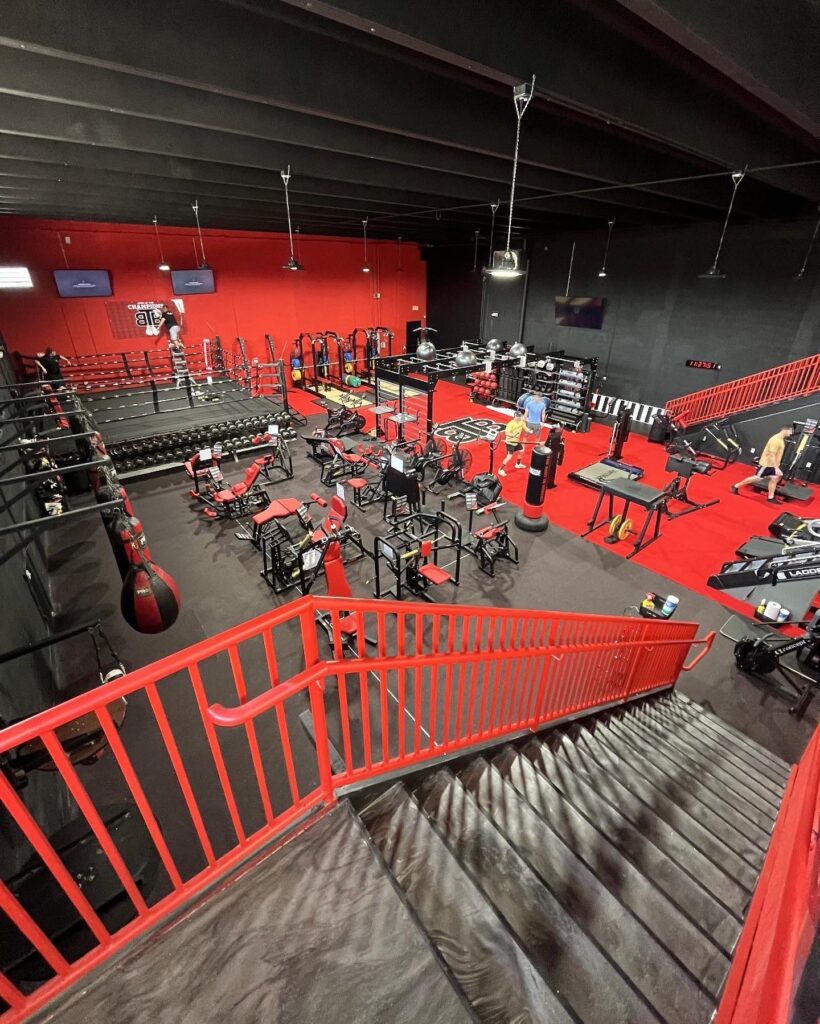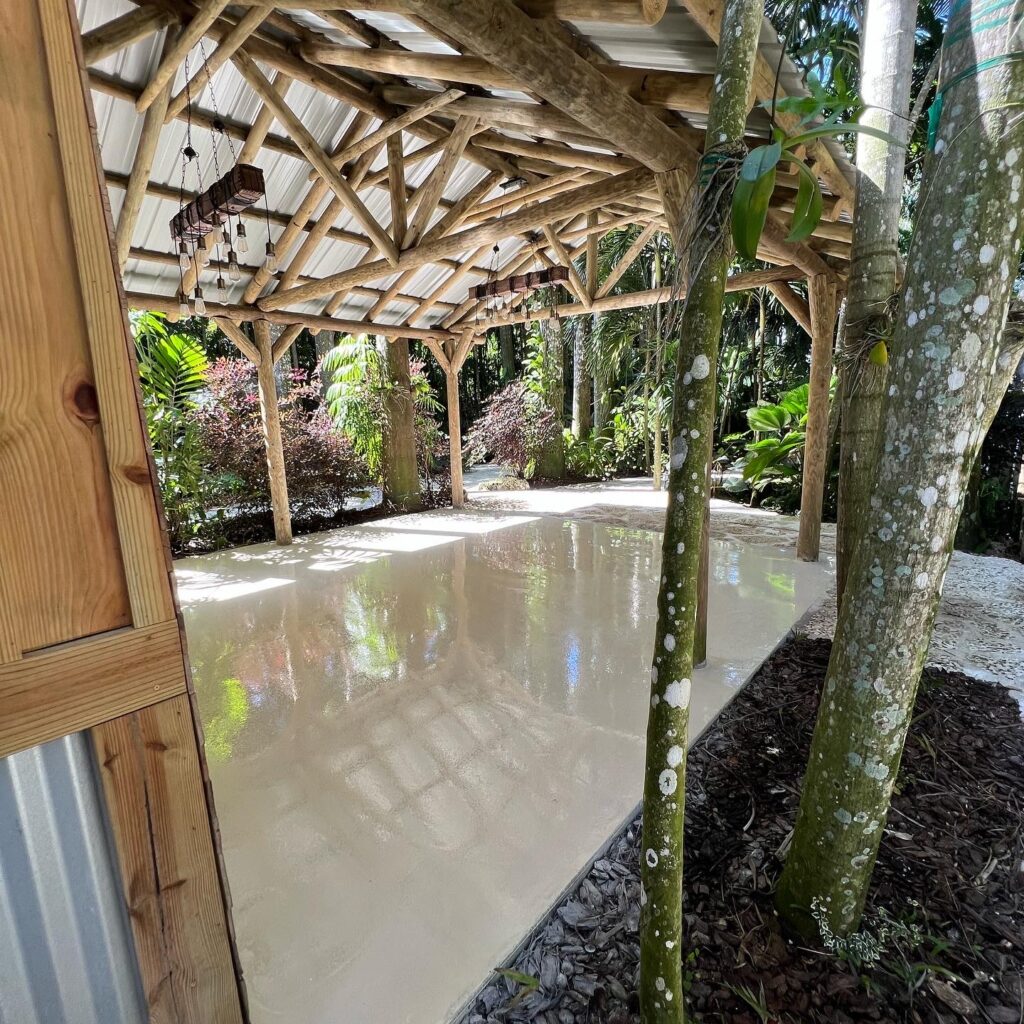Introduction
Your garage floor is more than just a slab of concrete—it’s the foundation of one of the most functional spaces in your home. Yet, it’s often neglected until cracks, stains, and wear become impossible to ignore. Enter garage floor coatings, a practical solution that not only protects but also transforms your garage into a polished, high-performance space. Whether you’re parking vehicles, using your garage as a workshop, or simply storing belongings, a properly coated floor adds value and resilience.
In this comprehensive guide, we’ll explore the cost, benefits, and best epoxy options for your garage floor. Plus, we’ll compare DIY and professional installations and help you decide which option best fits your needs.
Types of Garage Floor Coatings
1. Epoxy Coatings: The Industry Standard
Epoxy is the most popular choice for garage floors, known for its strength and visual appeal. This two-part resin and hardener formula creates a hard, durable surface that bonds to the concrete.
- Durability: Highly resistant to chemicals, oil stains, and tire marks.
- Customization: Available in various colors, patterns, and finishes (e.g., metallic, solid, or flake).
- Longevity: With proper care, a professional epoxy floor can last 10 to 20 years.
Best for: Homeowners seeking a long-lasting, high-performance surface with customizable finishes.
2. Polyurea & Polyaspartic Coatings: Fast and Durable
These coatings are often used as an upgrade to epoxy because they cure faster and offer better UV resistance. Polyurea is extremely flexible, making it resistant to cracking from temperature changes.
- Rapid Curing: Dries in hours, not days—minimizing downtime.
- UV Stability: Won’t yellow or fade under sunlight.
- Extreme Durability: Impact and scratch-resistant, even in harsh environments.
Best for: High-traffic garages or those exposed to sunlight and temperature changes.
3. Acrylic Sealers: Budget-Friendly but Limited
Acrylic sealers are a low-cost coating option. They form a thin, protective layer on top of the concrete and are available in either glossy or matte finishes.
- Affordability: Ideal for those on a budget.
- Ease of Application: DIY-friendly and easy to reapply.
- Short Lifespan: Typically 1 to 3 years, depending on use.
Best for: Homeowners seeking a temporary, budget-friendly solution.
4. Concrete Stains & Densifiers: Natural Appeal with Protection
Concrete stains are designed to penetrate the surface, providing subtle color without forming a surface layer. Densifiers react chemically to harden and strengthen the concrete.
- Aesthetic Appeal: Creates a natural, mottled look.
- Durability: Densifiers enhance concrete strength.
- Limited Protection: Not as effective against oil or chemical spills as epoxy or polyaspartic.
Best for: Homeowners who prefer an industrial aesthetic with low maintenance needs.
Cost Breakdown: DIY vs. Professional Installation
The cost of a garage floor coating depends on the material, labor, and prep work involved. Here’s how DIY and professional installations stack up:
| Feature | DIY Garage Floor Coating | Professional Epoxy Flooring |
| Cost | $2–$5 per sq. ft. | $5–$15 per sq. ft. |
| Prep Work | Surface cleaning only | Grinding or shot-blasting |
| Durability | 3–5 years | 10–20 years |
| Aesthetics | Limited colors & styles | Custom finishes available |
| Installation Time | 1–3 days | 1–2 days (faster curing) |
Key Cost Factors:
- Square Footage: Larger areas reduce cost per square foot.
- Coating Type: Epoxy is affordable; polyaspartic is premium-priced.
- Surface Condition: Cracks or oil stains may require repairs before coating.
- Labor: Professionals charge more but ensure correct installation and longevity.
⚙️ DIY vs. Professional Garage Floor Coating
🛠️ DIY Garage Floor Coating: Is It Worth It?
- ✅ Pros: Lower upfront cost, rewarding if you enjoy DIY projects.
- ❌ Cons: Risk of poor adhesion if concrete isn’t properly prepared. Often results in peeling or bubbling.
👷 Professional Installation: Paying for Perfection
- ✅ Pros: Professionals use industrial-grade materials and proper surface preparation techniques (e.g., diamond grinding). This ensures a smooth, long-lasting finish.
- ❌ Cons: Higher upfront cost but greater long-term value.
Verdict: For homeowners prioritizing longevity, aesthetics, and durability, professional installation is the superior choice.
🌟 Top Benefits of Epoxy Garage Floors
💪 1. Unmatched Durability
Epoxy is engineered to withstand the daily abuse of a garage—dropped tools, hot tires, and chemical spills. Its impact-resistant nature makes it ideal for high-traffic areas.
🧼 2. Easy to Clean and Maintain
Epoxy’s non-porous surface repels oil, water, and dirt. Spills wipe away effortlessly, and regular cleaning only requires a mop and mild detergent.
🎨 3. Stunning Aesthetic Appeal
From high-gloss metallic finishes to decorative flake floors, epoxy offers nearly unlimited design possibilities. Transform your garage from drab to showroom-quality.
🛡️ 4. Chemical and Stain Resistance
Garage floors face a constant battle against motor oil, gasoline, and road salts. Epoxy coatings are inherently resistant to these substances, preserving the floor’s appearance.
♻️ 5. Long-Term Investment
A well-installed epoxy floor can last up to 20 years, far outlasting other coatings. Plus, it adds property value and enhances your home’s appeal during resale.
🚀 Best Epoxy Options for Garage Floors
💎 1. 100% Solid Epoxy: The Gold Standard
- ✅ Most durable and long-lasting option
- ✅ Best for heavy-duty garages and industrial settings
- ❌ Requires professional installation for proper curing
🌟 2. Metallic Epoxy: High-End Aesthetics
- ✅ Offers a 3D, high-gloss finish resembling liquid metal
- ✅ Ideal for luxury garage designs or man-caves
- ❌ Higher cost due to specialized application techniques
🌈 3. Epoxy Flake Flooring: Style Meets Functionality
- ✅ Provides a textured surface, reducing slip hazards
- ✅ Customizable with various color blends
- ❌ Slightly rougher surface than metallic or solid epoxy
💧 4. Water-Based Epoxy: Affordable and Easy to Apply
- ✅ Best for budget-conscious homeowners
- ✅ Easier to DIY than 100% solid epoxy
- ❌ Less durable, lasting 3–5 years under heavy use
Comparison Table: Garage Floor Coatings vs. Epoxy Flooring
| Feature | Garage Floor Coatings | Epoxy Flooring |
| Durability | Moderate | High, impact-resistant |
| Cost | Lower | Higher upfront, long-term savings |
| Installation | Easier DIY application | Requires proper prep, best with pro installation |
| Lifespan | 3–5 years | 10–20 years |
| Aesthetic Options | Basic finishes | Customizable colors, flakes, metallic finishes |
| Best For | Light residential use | High-traffic garages, industrial settings |
FAQs: Your Garage Floor Coating Questions Answered
What is the best coating for garage floors?
The best coating depends on your needs:
- For durability and aesthetics: 100% solid epoxy or polyaspartic coatings.
- For budget-conscious homeowners: Water-based epoxy or acrylic sealers.
What is the best floor finish for a garage?
- For high-traffic garages: Flake epoxy (adds texture and slip resistance).
- For luxury finishes: Metallic epoxy (creates a showroom-quality effect).
What is the cheapest way to cover a concrete garage floor?
- Acrylic sealers or concrete paint are the cheapest options but lack durability.
- For better performance, a water-based epoxy offers more protection without breaking the bank.
Is coating your garage floor worth it?
Absolutely! Garage floor coatings:
- Prevent cracks and stains, reducing repair costs.
- Boost home value, making your property more appealing to buyers.
- Improve safety, with slip-resistant options available.
How long does garage coating last?
- Epoxy flooring: 10–20 years, depending on use and maintenance.
- Polyaspartic coatings: 15+ years, with superior UV protection.
- Acrylic sealers: Only 1–3 years, requiring regular reapplication.
Investing in garage floor coatings is more than just a cosmetic upgrade—it’s about protecting your investment, enhancing functionality, and boosting your home’s value. Whether you choose epoxy, polyaspartic, or acrylic options, the key is in proper preparation and installation.
For a garage floor that lasts decades, professional epoxy flooring is the gold standard. But if you’re on a budget and don’t mind occasional touch-ups, a DIY coating can still deliver significant improvements.
No matter your choice, your garage will never be the same—because a coated floor is a protected floor.



